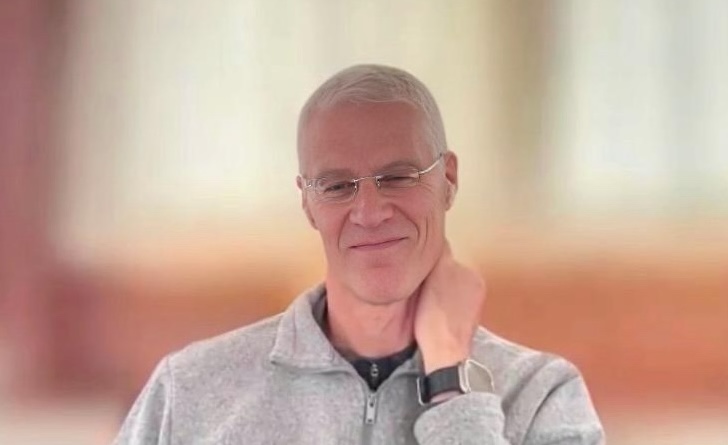After all these years, even more patience is needed in education philanthropy.
For more than a generation, the Archdiocese of Chicago has been responding to an ever-worsening set of circumstances related to its delivery of K-12 education. Declining student enrollment and the financial pressures accompanying demographic changes in the diocese has led to consolidations, school closings, and the selling of assets.
Faced with this situation, the late Cardinal Joseph Bernardin established the Big Shoulders Fund in 1986. As designed, the Big Shoulders Fund has supported student scholarships, school-operating funds, professional development for teachers and administrators, and resources for building renovations.
Bernardin’s successor, Cardinal Francis George, assumed leadership of the Archdiocese in 1997 and worked tirelessly for nearly 20 years to raise private funds and convince public-policymakers to provide low-income families with publicly funded options from which to select when making K-12 choices for their children. Staunch teachers’-union opposition and resolutely anti-choice legislators prevented parents from ever having these options.
Overall, Big Shoulders has helped the families of students attend some 70 Catholic schools, giving a total of more than $400 million over the past 33 years—during which time, unfortunately, economic and social conditions in parts of Chicago’s West and South sides have continued to deteriorate alarmingly.
Backed by some of the city’s most-successful business leaders, Big Shoulders announced an ambitious, 10-year commitment to give almost $50 million in additional funds to pay for 51% of the operational costs at 30 schools serving the families of 5,600 children. To this, the Archdiocese promises to add another nearly $45 million.
At these 30 schools, Big Shoulders will take the lead in hiring and evaluating teaching and administrative staff, assume an active role in enrollment management and curriculum development, and advise on marketing and finance.
“For generations, these schools have prepared students for college, career and life,” Big Shoulders president and chief executive officer Josh Hale said. “Alumni go on to study, work, volunteer and donate at rates higher than their peers. But, even more, this investment by our supporters is about strengthening neighborhoods that are enriched by these community-based organizations remaining places of hope and reasons to stay in the city.”
A 10-year plan, and similar plans elsewhere
As in Chicago, spearheaded by private philanthropy, Catholic archdioceses across the country have been working to find a way to save their urban K-12 schools for decades. Like Chicago, these efforts have included tuition-assistance nonprofit organizations like Big Shoulders, identifying individuals and foundations to help financially with the salaries of those teaching at and administering the schools, and contributing to the repair and/or renovation of old facilities.
These other archdioceses include New York, Philadelphia, Seattle. Like Chicago, they and others are also increasingly seeking to bring in groups that can help with hands-on management. Five years ago in Milwaukee, for example, Archbishop Jerome Listecki oversaw creation of a network of 10 K3-8 urban elementary schools. Private philanthropy was and is a prime source of support for the network, called the Seton Catholic Schools (on the board of which I am privileged to serve), and its activities.
As in the other cities, the church in Milwaukee has done some consolidation, but not nearly to the extent of Chicago or New York. While preparing elementary students academically for the next level of education, the Seton network is committed to spiritual formation, as well. Seton’s goals are familiar: like Big Shoulders’ big new 10-year plan, they are to increase enrollment, put in place the best classroom teachers and administrative personnel, and bring administrative efficiencies to management.
Like elsewhere, the task is daunting. It requires big shoulders.
A 30-year anniversary
This year, Milwaukee and the Wisconsin are celebrating the 30th anniversary of the establishment of the pathbreaking, publicly funded program to enable low-income parents to send their children to a school of their choice. The Milwaukee Parental Choice Program (MPCP) began in 1990 with 341 students attending seven participating independent, non-denominational schools. In Fall 2019, 28,978 MPCP students attended 120 schools, including private religious ones.
Philanthropy with which I am familiar played a critical role in Milwaukee in this reform. Strong pushback from the educrats and their political allies nearly derailed the effort at many points in those 30 years. The pushback against parental choice was probably always as strong as that in Chicago, but for whatever many reasons, it was overcome.
But in Milwaukee and so many other places, as in Chicago, big private-philanthropy shoulders are still required to carry the burden of meeting the dauntingness.
More years, of non-wobbly struggle and undeprecated agitation, to come
Some ed-reform givers seem to be losing heart. Whether they see education-related grantmaking as “mere” charity or “strategic” philanthropy, they shouldn’t. This is no time to go wobbly, as the Iron Lady said. The time is now to just plain fight through the fatigue that has developed in this battle—which still requires the same incrementalism we came to appreciate in Milwaukee.
There remains much to be done. They’re trying to do it in Chicago, and others are trying to do it elsewhere.
Milwaukee’s most-recognized advocate for parent choice in K-12 education, civil-rights activist Howard Fuller, often offers an inspiring Frederick Douglass quote that should resonate, perhaps even more deeply, now.
“If there is no struggle, there is no progress. Those who profess to favor freedom and yet deprecate agitation are men who want the crops without plowing up the ground. They want the ocean without the awful roar of its many waters,” Douglass said.
“This struggle may be a moral one, or it may be a physical one, and it may be both moral and physical, but it must be a struggle.”
Even-bigger shoulders are apparently needed, and some are admirably trying to build and exercise them.


